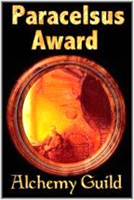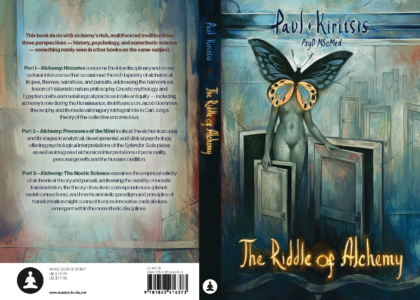
The following is a transcription (not verbatim) of a consultation that took place many years ago between a noteworthy and respectable physician practicing in John Fawkner Private Hospital in Coburg and myself. It vindicates the existence and undetected movements of the personal and universal dreambody. At the time, I was suffering from debilitating headaches, dizziness, muscle aches and spasms, physical exhaustion, and recurring nightmares that would jolt me from sleep at all ungodly hours of the night. This was the very last of a long line of consultations I had with Western doctors regarding a chronic and mysterious condition which has plagued me for most of my life. After these unfruitful searches, I didn’t think it worthwhile to continue the pursuit for an antidote in a denomination of inquiry that hasn’t quite evolved or grown as much as it would like to think. The consultation was also one that forced me into a disputation with my own religious beliefs and amplified my consciousness considerably.
Nowadays, I rarely interrogate the etiology of my own condition and shy away from inner turmoil inflicted by “Why me?” questions and the like. As outrageous as it sounds, I believe that the flames of torture incited by the mysterious ailment have been instrumental in cooking me to a psychospiritual finish. In some strange way and for reasons hitherto unknown to me, my suffering has hewn opulent and meaningful inner life experiences from the base substrate of my own being. Imperative messages that have been revealed through assiduous seeking and searching would probably never have come had I not been plagued persistently by illnesses, and I probably wouldn’t have learnt about vital and creative qualities lying dormant within my own unconscious had I not allowed the latter to take their natural course. Illness is the reason why I took my creative pursuits seriously in the first place. Hence I owe this “protean force” for my own evolution.
My life experiences thus far have also taught me something else of vital and monumental importance: where it doesn’t signal death, illness is greatest transformation that can befall a human being during his or her earthbound journey.
*
To protect the doctor’s true identity and reputation I use the pseudonym Nate O’Connor.
Nate O’Connor: Hi Paul, how you been?
Paul Kiritsis: Not too bad considering the circumstances.
N: You weren’t kept waiting long outside were you?
P: No I was the one running late.
N: Take a seat.
P: Thanks Nate.
N: Okay so your results came in the other day.
P: Yeah and?
N: Everything’s normal, cell counts and all. There’s no sign of any nasties there either.
P: What about the MRI?
N: (Pulling out X-ray film) I’ve already had a look at them. There’s nothing wrong with your brain. It’s perfectly normal.
P: Really?
N: Yeah.
P: Hmm…
N: What’s wrong Paul? You look upset. You should be happy that everything‘s normal. You’re a fit and healthy young man with all your life ahead of you!
P: Yeah I know but I’m not.
N: Why?
P: Because the results are saying one thing and my body says something completely different. All these test results don’t really prove anything other than the fact that the medical establishment hasn’t the slightest with what’s going down with me.
N: You know I had a little think about this.
P: About what?
N: About your situation. I really don’t know where to go to from here Paul, I really don’t. The symptoms you describe are vague; they could point to any illness. I can’t just keep ordering tests at random. I need to have a pretty good idea of what we’re looking for if I’m to send you off for anymore. It’ll save you time and money…
P: I understand that.
N: Otherwise it’s just a case of the blind leading the blind.
P: Right.
N: Please describe the symptoms again.
P: We’ve done this so many times already Nate.
N: It’s just to make sure I haven’t missed anything. You can never be too careful.
P: Is that really the reason?
N: Why shouldn’t it be?
P: I don’t know you tell me!
N: Don’t worry it’s got absolutely nothing to do with whether you’re telling the truth or not.
P: (Sighs) Okay. You’re going to make me feel like a broken record again. I’ve told this same story to about twenty different doctors and they all look at me as if I’m from another planet. Secretly, they all think I’m crazy.
N: I don’t think you’re crazy Paul.
P: I know that Nate. That’s the reason why I agreed to come here for more than one consultation. You’re probably the only doctor that has listened to my story without any preconceptions or prejudgements. It appears that most medical doctors don’t encompass that ability. I really respect your open-mindedness and your willingness to step outside the archetypal square of Western medicine and see things from a completely different angle.
N: Thanks Paul.
P: Credit where it’s due!
N: I guess it has a little something to do with the fact that I travelled and practiced in India for a few years. I think working alongside Indian doctors really opened up my eyes as to the nature of health and wellbeing; there’s definitely more than one way to healing and knowing. Their culture is thousands and thousands of years old and they have amassed a wealth of knowledge accordingly; if any medical system has come across conditions such as yours, it may very well be the Indian or Chinese ones.
P: I’d agree with that.
N: Paul it’s not a question of belief. Trust me it’s not. I believe what you’re saying. I have no reason not to. You’re such a well-balanced and level-headed guy; it makes no sense to me as to why somebody like you would fabricate such a story. You’re just not the type that would have a complex or undisclosed desire for attention, you’re just not!
P: Sadly, most doctors don’t take personality or temperament into account when they form their hypotheses. In any case you’re right. It’s not me.
N: I know that.
P: (Clears voice) Anyway, as I told you, it all started when I was moving into teenagehood. I was turning thirteen.
N: What started?
P: Something happened to me. Something changed.
N: Go on.
P: I woke up one day and something within me just didn’t feel right anymore. Something just wasn’t right. I didn’t feel well within myself.
N: I want you to expand on that point. I want you to tell me exactly what you mean by it.
P: (Sighs) It’s something really difficult to describe Nate.
N: Well try to it’s important.
P: (Shrugging) I don’t know. I’m not sure if it’s something to do with my nervous system or my brain. I have an intuitive feeling that it’s a latent virus in my brain.
N: Paul no conclusions at the moment please. Just describe the symptoms.
P: It just felt like something had materialized out of nowhere; something within the configuration of my own being changed. I know it sounds like a description of a subjective mental state but it’s not. It’s a physical feeling that I’m trying to describe and every time I do so I fail because it eludes tangible and quantitative description. Does that make sense?
N: Sort of.
P: The only thing I know Nate is that I wasn’t like I’d been before. It’s just something that I can’t put a finger on; it’s not a localized pain, wound, itch, abrasion, sore, or whatever. It’s more of a general feeling that’s associated with the sensory modalities and with the way we feel the world. If I could somehow invite you into my body, even for a single moment, you would understand exactly what I mean and how difficult it actually is to describe such a phenomenon. It evades definition through language, it transcends language completely.
N: Be more specific.
I: I can’t. It’s by nature unspecific. At first I thought it might be HIV. I remember seeing a documentary on it a few weeks after the feeling of ‘wrongness’ came to me. Sometimes I’m inclined to describe it as a conversion. At that time HIV was razing down people with a scythe; it was a definite death sentence. I remember a recently diagnosed HIV-positive patient on A Current Affair describing what the feeling of ‘conversion’ actually felt like. I’m not sure if I misinterpreted what she was saying or heard wrong, but the feeling she described was identical to the one which I was experiencing. She even used the same words as me.
N: Which were?
I: ‘Feeling wrong within oneself.’
Looking back I think it was the most traumatic moment of my young life, a moment which, in all its stygian and malignant darkness, stands as perhaps the most pivotal and life-altering. It changed me for better or for worse Nate.
N: Well we obviously know that it wasn’t HIV.
I: Knowing what I know now, there was obviously no way I could have contracted it. What convinced me that I had it was a movie that began showing in cinemas a year or so afterwards. I don’t remember the title or the actors but it was about a young HIV-positive girl who mysteriously contracted HIV without ever having had sex or been pricked by a used syringe. That convinced me that I was probably another such case and that I was destined to die before my twenty-first birthday.
N: (Smiling) Well we both know you were very wrong about that!
P: Yes but for years I lived in fear.
N: Hence the psychosomatic symptoms of aches and pains; the tiredness and feeling like you’d been climbing Mt Everest for no apparent reason.
P: Naturally after I mustered the courage to have the antibody test and found out that I was negative the symptoms gradually abated.
N: The mind has powers over the body; the two are linked.
P: But the feeling of wrongness didn’t Nate. Instead of abating it gradually started to change.
N: What do you mean the feeling of wrongness started to change?
P: With the passage of time–months and years–I would begin feeling slightly different. It felt as though whatever was happening in my brain and in my nervous system, the virus or whatever it was proliferating rampantly. I don’t even know if it’s a latent virus. I only say virus because HIV was the first illness to which I connected my own feeling of wrongness.
N: Is there anything else that brought you to the conclusion that it was a viral pathogen?
P: Yes my vision started changing. My eyes are much more sensitive to light now whereas previously they hadn’t been. Artificial lights–traffic lights, car lights and street lights–are the worst. I can’t look at them without squinting. When I’m forced to look at them for too long I suffer tension headaches. On the whole I seem to fare much better with natural light.
N: I see.
P: I searched for answers everywhere Nate. I’ve been to so many doctors; I’ve bothered to go down to the state library and tried to find media articles with the requisite tags; and I’ve spent a great many hours researching on the internet. I traced all of my international movements, where I was, and what I was eating immediately prior to my ‘conversion’, all to no avail. I couldn’t find any pathogen, poison, molecule, or element known to cause such a feeling. There’s nothing more demoralizing than feeling that you’re the only person suffering from a particular condition and that everybody around you is powerless to help.
N: Why is it you think that there isn’t any record of somebody suffering from the same sort of thing as you?
P: There wasn’t until recently.
N: Oh yeah?
P: One of my workmates told me about it. It was a story published by Beyond Blue some time ago.
N: They’re the organization that deals with depressed youth, yes?
P: That’s right. It was about a sixteen-year old girl who kept complaining of the same sort of symptoms which I describe and of ‘not feeling well within herself’. The girl was otherwise highly spirited, motivated, and healthy; she would go on morning and evening jogs with her father, had a plethora of friends, and wanted to make something of herself. In other words she was as ordinary as any teenager can be. Her search for what might be wrong with her was as fruitless as mine. She had some medical tests done and everything came back normal. Inevitably the futility of not being able to get to the root of her condition got to her and she committed suicide by hanging herself from the garage roof.
N: But how can you be sure that it’s the same thing you’re suffering from?
P: I just knew. Call it intuition, whatever. I knew that it was the same thing. And it was all I needed to convince me that what was happening to me was real and not imagined. It wasn’t the product of an unhappy or unrealized childhood, or repressed anger, or an unconscious need for validation, or attention-seeking. Doctors tend to pigeonhole all those whose problems don’t disappear with the pill and with the scalpel into the ‘crazy’ category, which is why most people with such problems stop complaining after a while. They know that repeated offences will attract the interest of psychiatrists and prolonged ones might get them thrown into an asylum.
N: I wouldn’t say that Paul.
P: I think that the teenage girl suffered and am still suffering from something which modern medicine has yet to discover.
N: She could have just been depressed.
P: It was the condition that led to her depression though, not the other way around.
N: Perhaps.
P: (Sighing) I also understand why she committed suicide.
N: Suicide isn’t the answer to problems Paul.
P: I never said it was. I’m just saying that I understand why she did it. You can never know the seriousness and unbearable nature of any chronic condition, or how overwhelming and overpowering it can be until you’re standing in those shoes yourself, right?
N: Surely.
P: I suppose that’s something we should all be weary of.
N: Yes.
P: It’s just difficult not knowing where all of this is going to go next. It’s like having fallen into a torrent and being entirely at the mercy of its current. You never quite know if you’re being swept towards dry land or a precipitous waterfall.
N: Paul, do you want me to refer you to a good psychologist? There’s one that…
P: I don’t want to see a psychologist Nate. I’m not depressed.
N: I didn’t say you were. But seeing a psychologist at this stage might be the difference between lapsing into depression and dealing constructively with what’s going on inside you.
P: I can handle myself.
N: He could also help you with the nightmares. I recall that on your last visit you mentioned that you’d been experiencing terrible nightmares.
P: They come and go and seem to coincide with my physical symptoms.
N: The headaches, dizziness, and the muscle pains yeah?
P: Yes. I keep having dreams of rotting flesh and being set on fire by other people and trying to get my clothes off. One of the most distressing ones occurred about a week ago. In one dream segment I remember waking up surrounded by these grotesque lithe-bodied reptilian creatures with almond-shaped eyes and bulbous heads. They were quite short in stature, coming up to about my chest. Their mannerisms and behaviours were uncanny and they proceeded to grope me all over. There was definitely a sexual element to the touching. I wasn’t quite sure if they were male, female, or hermaphrodites. The strange thing about the dream was that I could actually read their thoughts telepathically. They were asking one another why their experiment had failed to transform me into one of them. Why was I still different? By different I assumed they meant human. I was sure that if I stayed with them for too long they would make subsequent attempts to modify or change me. I wasn’t sure how they might go about doing this; I just knew they would go on trying until they finally succeeded.
All the while I’m wondering how I might go about getting home. As I think about my loved ones back home, I become conscious of a deep sense of grief wanting to explode from the pit of my stomach. It’s the same type of grief and anguish you feel when you lose a partner, sibling, mother, or somebody else dear to you. In many ways I felt as though I was a small child that had lost its parents amidst a crowd of menacing strangers. That’s how potent and piercing the anguish was. In a desperate bid to escape I dash around the dark complex looking for a way out. Glancing out from one of the proscenium arches towards a stretch of sea I realize I’m on a tower high up in the mountains.
Suddenly a middle-age woman appears out of nowhere, wearing a nineteenth century court dress. Unlike the eerie reptilian creatures which appear to heed to her implicit wishes, she is very beautiful and appears to act magnanimously. Our eyes lock for a few seconds as we try to make sense out of one another. The expression that possesses her face after a brief moment is one of recognition; she seems to know who I am. She trudges up to me and embraces me like a mother her long lost child. Touched by this unprecedented and open display of affection, I drop to my knees in front of her. Holding onto her skirts I burst into lamentations, heaving for breath and screaming ‘I want to go home’. I’ve never experienced that kind of grief in real life. The dream really upset me and its vibration stayed with me for days afterwards. It really frazzled me; it ripped through to the core of my being and I couldn’t shake it. I guess you might call it a big dream.
N: That’s some pretty powerful stuff there.
P: The dream is a perfect example of why I identify with the Gnostic myth of Sophia so much.
N: What happened to her?
P: She descended from heaven to earth to help Man escape from the ravages of Yaldabaoth but suffered amnesia in the process. She forgot about who she really was and why she had been sent. Of course the Great Mother was able to intervene and save the day, sending her son in the form of the Christ to awaken his sister to the memory of her true being and purpose.
N: In what way does the myth mirror your own life?
P: It’s like a personal myth for me. I descended from that transcendental place in heaven when I suffered ‘conversion’ at the hands of my mysterious condition. As the years went by and go by memory of that Adamic state before ‘conversion’ gradually fades from my memory. I only faintly recall what it felt to be inside my own body prior to ‘conversion’; sometimes I wonder if the Great Mother will send one of her children to cure me of this terrestrial slumber. I think the silence thus far has been a sobering conclusion and I’ve accepted the fact that I might never acquire an elixir able to cure me. I don’t think I’ll ever return to Eden before my death. I’d gladly sacrifice anything to feel like I did prior to the onset of my condition, I really would. I guess sometimes we don’t really know what we’ve got until we say goodbye.
N: (Lifting the blood tests up for me to see) You’re not going to say goodbye for a long while yet. You have a long and healthy life ahead of you Paul.
P: ‘Not detected’ huh?
N: Yes Paul. Would you rather it says ‘detected’?
P: No.
N: Then don’t question it.
P: My dreambody says detected though.
N: What’s a dreambody?
P: Have you ever heard of the transpersonal psychologist Arnold Mindell?
N: Psychology is not my specialty.
P: So that answer’s no.
N: That’s correct.
P: You should look him up Nate. He’s very fascinating.
N: Are you going to tell me what a dreambody is or not?
P: It’s your spirit-force; your vital life force. It speaks through all your channels of perception; your sensory modalities, your dreams, your hypnagogic imagery. It uses all these things to tell you that something’s wrong.
N: And what do you think yours is telling you?
P: It says ‘detected’.
N: Ha!
P: I don’t know Nate. Perhaps it is the will of some unknown creative force above us that I be living with something incurable and unknown to science in the twenty-first century.
N: It’s not likely but it’s possible.
P: At least you admit that there’s a possibility.
N: I’ll concede that much. I guess you’ve already made up your mind though.
P: For a piece of mind yes.
N: I see.
P: Either that chose me or I chose it. I prefer the former option. That way I can entertain the notion that there are meaningful lessons to be learned from it that will spur me on to some great insight. Either way, I guess we’re stuck with one another till the end of my days.
N: It definitely looks that way.
P: Maybe ‘not detected’ is a blessing in disguise then.
N: (Looking contemplative) It is a blessing in disguise, regardless of the way you choose to look at things. I guess you can draw courage and strength from that.
*








